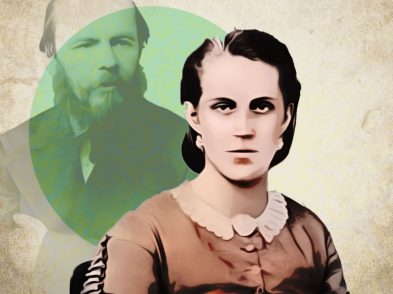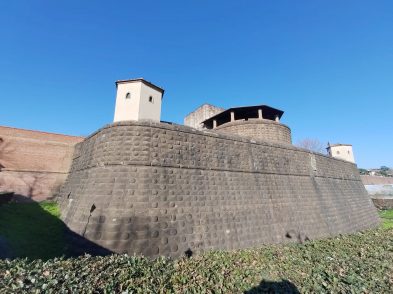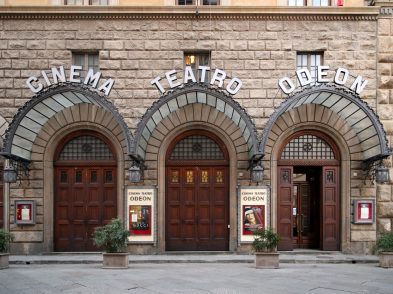The
bankruptcy of the dairy products multinational corporation Parmalat in December
2003, sent shock waves throughout global financial markets. In what was to
prove the biggest corporate fraud so far in European history, Parmalat finished
up in a black hole of 14 billion euro of debt, eight times more than the
company had previously declared. This left both big and small investors with
nothing but worthless stock and 36,000 employees at 148 plants situated in 30
countries around the world at risk of losing their jobs. Since founding the
company in 1961, Italian entrepreneur Calisto Tanzi, owner and CEO, had built
it into Italy’s eighth-largest industry. But he also embezzled an estimated 800
million euro through an intricate system of falsified accounting, forgeries and
money siphoning. In doing so, he brought Parmalat to its knees and precipitated
his own downfall.
At
22, after his father’s death, Tanzi took over the family’s small ham and cheese
business. Creating a pasteurization plant, he named the new company Parmalat,
after Parma, the main town situated near Collecchio, the village in central
Italy where he was born on November 17, 1938.
From
the very beginning, Tanzi’s ambitious objective was to transform Parmalat into
an international enterprise and himself into a highly respected and powerful
entrepreneur. Over the years, he cultivated politicians, initially among the
then-ruling Christian Democrat party and later from other parties across the
political spectrum, making handsome under-the-table contributions to party
funds, frequently paid for with company monies. The politicians, in return, would
help him by steering legislation favourable to his affairs and by introducing
him to people in key positions who could help him procure the resources needed
for Parmalat’s spectacular expansion. Tanzi did not invent this kind of
complicity between business and politics. It had been around since Italy began
its reconstruction after World War II and would last until it was exposed by
the Tangentopoli (‘Bribesville’)
investigation by Milan prosecutors in the early 1990s, which ended the
so-called First Republic, with the demise of the Christian Democrat and
Socialist Parties.
Having
expanded Parmalat rapidly over three decades, in 1990, Tanzi decided to list
his company on the stock exchange. The Tanzi family, which retained a 51
percent stake, had opened operations in the United States (where its products
included Archway cookies, Parkay margarine and Lactaid milk), Germany, France,
Brazil, China, South Africa and Australia. Like all big public companies,
Parmalat was under pressure to produce good results for shareholders, and this
pressure appears to have triggered even more ‘creative’ bookkeeping.
To
maximise visibility of its brand name, Parmalat had sponsored sporting events,
such as Formula 1 motor racing and skiing championships, but the prize was acquiring,
in 1990, the Parma AC soccer club, with Tanzi’s son, Stefano, as its president.
(The team later had to be sold off by the company’s government-appointed
bankruptcy administrator.) Perhaps to emulate Silvio Berlusconi, Tanzi bought a
TV station, Odeon TV, but was forced to sell it because it was hugely in the
red. The family’s tourism business, run by his older daughter, Francesca, was
kept running with illicit infusions of Parmalat cash.
In
November 2003, new auditors found anomalies in Parmalat’s books, prompting
a suspension in the trade of its stock on the Milan stock exchange. Tanzi was
eventually forced to reveal that the nearly 5 billion U.S. dollars the company
was supposed to have in a Bank of America account in the Cayman Islands were,
in fact, nonexistent. In late December, Parmalat filed for bankruptcy
protection. The U.S. Securities and Exchange Commission then sued Parmalat,
alleging it had wrongfully induced American investors to buy more than $1.5
billion U.S. dollars worth of securities. Eventually, along with Tanzi, 27
others, largely Parmalat’s former chief financial officers and accountants from
the original too-compliant auditing firm, were implicated in the scandal. Even
global banks and securities companies, including Citigroup, Morgan Stanley,
Deutsche Bank and UBS, were also indicted for breaches of securities law but
later acquitted.
Tanzi,
described as an unassuming, family man-perhaps too dedicated to his family, as
his efforts to find cushy jobs for his relatives and cohorts contributed to his
undoing-was convicted, at first instance, in 2008 to 10 years in prison for
fraud. The conviction was upheld in 2010. After the Italian Supreme Court
reduced his sentence to eight years and one month, Tanzi was imprisoned in May
2011. Instead, in 2010, in the main case against him for fraudulent bankruptcy
and criminal association brought before the Court in Parma, he was sentenced to
18 years imprisonment. He has appealed the decision.
In
December 2009, Italian police seized 19 artworks by Picasso, Monet, Degas, Van
Gogh and others belonging to Tanzi, worth more than 100 million euro. They had
been hidden by friends and, now after their seizure, will be sold to pay back
some of the company’s losses, though most of these debts will never be
recovered. Further humiliation came in 2010, when the Giorgio Napolitano,
president of the Republic, withdrew honours previously bestowed on Tanzi
because he was deemed ‘unworthy’ of them.
Tanzi
may have fallen, but his company continues. In 2005, Parmalat was restructured
and again on the Milan stock exchange. Since 2011, it has been a subsidiary of
the French group Lactalis, already owner of such Italian dairy brands as
Invernizzi and Galbani.







